Update from the Field: A Year in Review
Posted by David Dyson, Agronomist on December 26, 2017
As we celebrate another Christmas with family and friends, let us look back at the cropping season of 2017. This year saw new genetics, wild weather, and even wilder commodity prices.
With the New Year came the anxiety of wondering what products, if any, was the government going to allow us, as U.S. producers, to apply on soybeans to control the ever-expanding list of resistance weeds. As the list of approved products that were allowed to be applied to dicamba resistant soybeans grew, the 2017 soybean crop protection season came into focus. Some crop protection specialists suggested applying an approved dicamba once as burndown and then again as an in-crop treatment, similar to the glyphosate programs of the past. Many crop advisers—myself included—highly recommended looking at dicamba from a new perspective and changing the way we look at killing weeds. By applying dicamba once during planting, we reduced the chances of off-target application to nearly zero. Coupled with a good residual, the initial burndown will last well into July. Followed by a glyphosate application mid-summer, the total program was reasonably priced, very effective against weed resistance, and reduced the chances of claims due to off-target application.
If one called the 2017 cropping season’s weather very wild, it would be considered an understatement. We first witnessed the state of Michigan outpace Indiana and Ohio in planted acres, due to continuous rainy weather and wet soil conditions. Indiana fell so far behind the pace of previous years that farmers began switching acres that were earmarked for corn to soybeans. Even after the corn seed got into the ground, the rain never let up. After a couple more downpours, replants started and continued until the middle of June. The wet weather created restricted root-growing conditions, and our foliar fertilizer, OverPass® SF (10-2-10 + 0.5 B, 0.25 Mn) had a great response on both corn and soybeans when applied at V4-V6.
Commodity prices continued their downward spiral throughout the year, causing a few clients to question if they could afford to keep protecting their crop with fungicides and insecticides. My position is that you cannot afford to not protect your investment—especially in a down market. To achieve the same per acre income as in previous years, you have to squeeze more bushels out of that acre. Northern Indiana and southern Michigan saw the soybean aphid return in numbers we have not seen for six years. The increase in moisture and late season heat created a perfect environment for disease in both corn and soybeans. Applications of late season insecticide and fungicide drastically increased yields by twenty bushels in both corn and soybeans. These products do not necessarily increase yield as much as they protect the yields you have worked so hard to achieve throughout the year. With the increase in both strobilurin resistant frogeye leaf spot in soybeans and southern rust in northern corn fields, we must think about switching up our fungicide programs.
Most people are looking forward to seeing 2017 in the rear-view mirror, but we are still in a La Niña weather pattern, and we may see some of the same challenges in 2018 that we saw in 2017. Let us give our crops the best growing environment possible by applying a high quality starter like Season Pass® and protecting our investment all the way through harvest with our OverPass® line of products.
Happy New Year!
FOR MORE INFORMATION:
Please complete the form, and we’ll get you in touch with your Territory Manager from The Andersons.

Dave Dyson is a regional agronomist for The Andersons’ Farm Centers which are located throughout Ohio, Michigan, and Indiana. He is an Indiana native and grew up on a dairy farm in Miami County. A graduate of Purdue University with a degree in Crop & Soil Science, Dave has a deep knowledge of various agronomic topics and is committed to helping growers improve their crops. If you have any questions, Dave can be reached at david_dyson@andersonsinc.com.
Season Pass and OverPass are registered trademarks of The Andersons, Inc.


